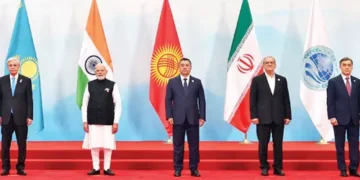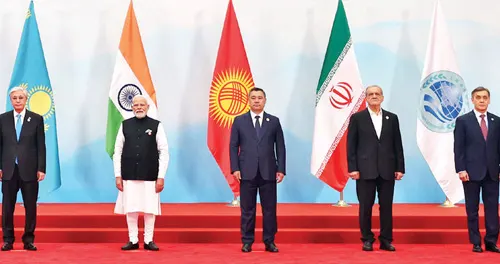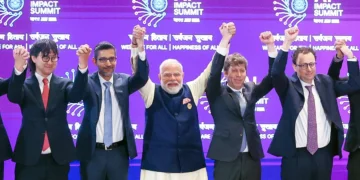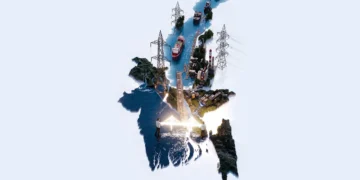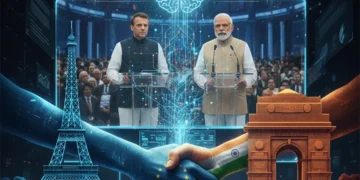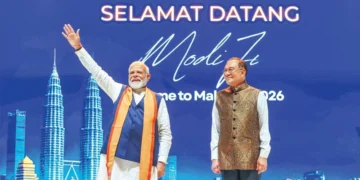 As the geopolitical impact of Prime Minister Narendra Modi’s visit to Shanghai Cooperation Organisation (SCO) Summit in Tianjin, China, sinks in, its central message is unmistakable. The bonhomie witnessed during the meetings of Prime Minister Modi with Chinese leader Xi Jinping and Russian President Vladmir Putin showed a clear intent to present a united front to President Trump, if not necessarily the US.
As the geopolitical impact of Prime Minister Narendra Modi’s visit to Shanghai Cooperation Organisation (SCO) Summit in Tianjin, China, sinks in, its central message is unmistakable. The bonhomie witnessed during the meetings of Prime Minister Modi with Chinese leader Xi Jinping and Russian President Vladmir Putin showed a clear intent to present a united front to President Trump, if not necessarily the US.
Beyond the tangible outcomes of the summit, this underscored a shift in India’s foreign policy outlook. By coming together, the three leaders sent out a powerful signal to Trump, even if concrete on-ground moves flowing from the meetings will have to be awaited.
Strong signalling
While Modi-Xi talks saw the two leaders agreeing to push the normalisation process initiated in October 2024, the Indian Prime Minster discussed ways to address the global energy crisis and facilitate early resolution of the Ukraine conflict with Putin.
India has good reasons to be concerned about increasing anti-India statements from Donald Trump and his senior aides in the US Administration. The Indian signalling, via no less than a visit by the Prime Minister to China, has been so strong that the US Embassy in India put out tweets saying how good India-US relations are and how the relationship is growing in strength. This is significant in the backdrop of sustained belligerence from the White House in recent weeks. Even so, it would be naive to assume that India has moved closer to China, or that its ties with the US have been ruptured beyond repair.
As for Russia, bilateral relations have been cordial, notwithstanding some predictable ups and downs. Russia has stood by India economically, diplomatically and militarily for 70 years. India has reciprocated to the extent it can. Putin, in turn, has appreciated India’s efforts for resolution of the Ukrainian crisis.
Nuanced approach
Recalibrating India-China ties, however, calls for a more nuanced approach. Apart from the boundary question, China’s strategy of using Pakistan as a counterweight to India cannot be ignored. It was a matter of satisfaction that the SCO Summit acknowledged terrorism and the attack in Pahalgam by Pakistani terrorists. As for the boundary question, it has always been China’s stand that it should be delinked from trade and investment between the two countries.
The pace of India-China rapprochement is set to be slow and has limits, but US actions have confirmed suspicions in New Delhi and the stain on its image may prove indelible.
The developments at the SCO Summit, as well as PM Modi’s visit to Japan earlier, have put Trump on notice that India has other options. In the midst of global disruptions caused by Trump’s policies, India has struck to strident pursuit of its strategic autonomy.
